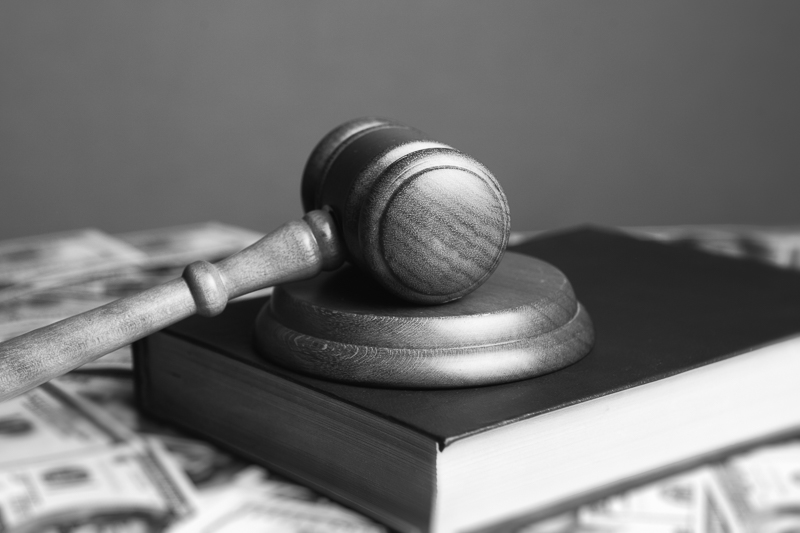
Refund: Substantiation of Unutilized Input VAT No More
By: Atty. Irwin C. Nidea Jr.
"But just recently, the Supreme Court En Banc has reversed the CTA in the case of Chevron Holdings, Inc. v. Commissioner of Internal Revenue (G.R. No. 215159, July 5, 2022). The SC En Banc held that it would not deny the request for refund of unutilized input VAT from zero-rated sales on the ground that the taxpayer does not have 'excess' input VAT from the output VAT of the quarter of claim since the law does not require it. The SC En Banc also held that the CTA erred in requiring the taxpayer to substantiate its excess input tax carried over from the previous quarter before it may be utilized."
 Irwin C. Nidea Jr. +632 8403-2001 loc.330 |
For many years now, the right of taxpayers to claim for VAT refund has been constrained and limited. The CTA has been consistent with its stand that in a claim for refund, before the unutilized input VAT of prior quarters can be applied to the current quarter’s output tax, the same must first be substantiated. It means that a taxpayer must show the invoices or receipts from which the unutilized input VAT of the previous quarters was derived. Otherwise, only the substantiated input VAT of the current quarter may be applied to the output VAT of the current quarter. Only the remaining amount of input VAT may be refunded by a taxpayer. In effect, the refundable amount is significantly reduced.
 The prevailing ruling for many years is that if a taxpayer does not have an excess input VAT over its output VAT in the current period, it can no longer claim for refund. Though it is common practice to charge first all the input VAT, including those related to zero-rated sales, to output VAT, there is no law nor regulation prohibiting the segregation of input VAT for refund from those that will be credited to output VAT during the period.
The prevailing ruling for many years is that if a taxpayer does not have an excess input VAT over its output VAT in the current period, it can no longer claim for refund. Though it is common practice to charge first all the input VAT, including those related to zero-rated sales, to output VAT, there is no law nor regulation prohibiting the segregation of input VAT for refund from those that will be credited to output VAT during the period.
Many taxpayers have adopted this conservative approach. VAT refund claims have been limited to what remains with the input VAT of the current quarter after subtracting the current quarter’s output VAT. The requirement of substantiating the accumulated unutilized input tax from prior quarters is next to impossible to comply with because taxpayers are effectively being asked to prove all their input VAT since the incorporation of a company.
But just recently, the Supreme Court En Banc has reversed the CTA in the case of Chevron Holdings, Inc. v. Commissioner of Internal Revenue (G.R. No. 215159, July 5, 2022). The SC En Banc held that it would not deny the request for refund of unutilized input VAT from zero-rated sales on the ground that the taxpayer does not have "excess" input VAT from the output VAT of the quarter of claim since the law does not require it. The SC En Banc also held that the CTA erred in requiring the taxpayer to substantiate its excess input tax carried over from the previous quarter before it may be utilized. The SC ruled that the Tax Code merely requires that the input tax claimed for refund "has not been applied against the output tax."
According to the SC, “there is nothing in the law and rules that mandate the taxpayer to deduct the input tax attributable to zero-rated sales from the output tax from regular twelve percent (12%) VAT-able sales first and only the "excess" may be refunded or issued a tax credit certificate. The SC added that remedies accorded by law to the taxpayer are alternatives. Requiring taxpayers to prove that they did not charge the input tax claimed for refund against the output tax is one thing; requiring them to prove that they have "excess" input tax after offsetting it from output tax is another”.
The SC emphasized that “the crediting of input taxes, including input tax attributable to zero-rated sales, from the output tax should be discretionary to the taxpayer as it is the taxpayer who is more interested in reducing its output tax payable. Also, to require entities engaged in zero-rated transactions to charge their input tax from zero-rated sales against their output VAT from regular twelve percent (12%) VAT-able sales would defeat the very object of the tax measure, which is to generate more income for the government.”
In sum, it was erroneous for the CTA to charge the validated and substantiated input taxes against the taxpayer’s output taxes first and use the resultant amount as the basis for computing the allowable amount for refund. The CTA, according to the SC, also erred in requiring the taxpayer to substantiate its excess input tax carried over from the previous quarter as it is not a requirement for entitlement to a refund of unused or unutilized input VAT from zero-rated sales.
With this SC decision, taxpayers can now fully claim the input VAT of the current quarter that is attributable to its zero-rated sales. It need not subtract its current output vat from the current input vat before it may refund what remains. The unutilized input vat of the prior quarters may now be utilized to pay for the current quarter’s output tax without the need for substantiation.
This new jurisprudence is a welcome development. It has finally been clarified that taxpayers are entitled to segregate and refund the full amount of input VAT that is attributable to their zero-rated sales.
The author is a senior partner of Du-Baladad and Associates Law Offices, a member-firm of WTS Global.
The article is for general information only and is not intended, nor should be construed as a substitute for tax, legal or financial advice on any specific matter. Applicability of this article to any actual or particular tax or legal issue should be supported therefore by a professional study or advice. If you have any comments or questions concerning the article, you may e-mail the author at This email address is being protected from spambots. You need JavaScript enabled to view it. or call 8403-2001 local 330.




